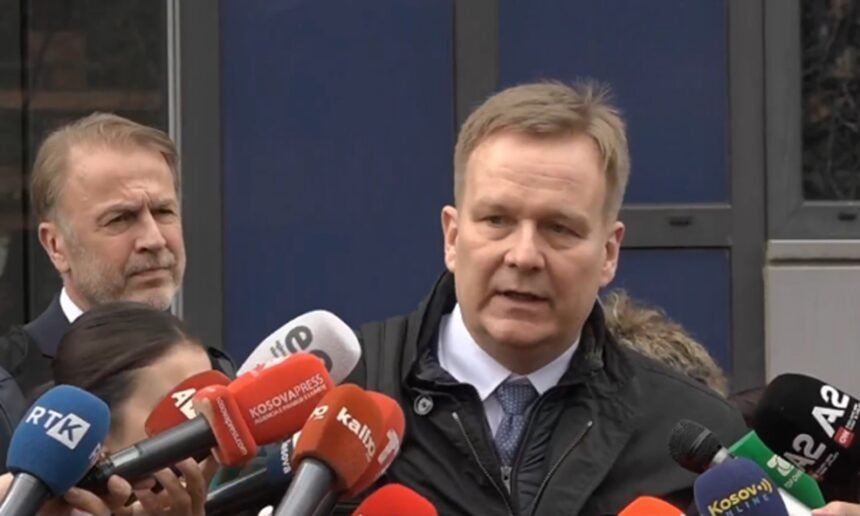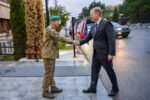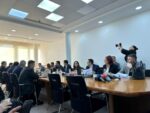The European Union’s Special Envoy for the Kosovo–Serbia dialogue, Peter Sørensen, said in an interview with Agenzia Nova that the normalization of relations between the two countries is not a one-meeting process, but a continuous effort aimed at improving the lives of citizens.
Sørensen, who took over the mandate in January from Miroslav Lajčák, said he has held over 60 official meetings in the region since assuming office and organized two rounds of chief negotiators’ talks in Brussels.
“Since taking office, I’ve held more than 60 official meetings in the region and organized two rounds of negotiations in Brussels, where we discussed very concrete issues — from economic cooperation to the fate of missing persons from the war in Kosovo.
The process is not always linear, and much of it happens behind the scenes, but real progress is made every day,” Sørensen said.
He pointed out that freedom of movement and practical cooperation have significantly improved:
“Every day, people, vehicles, and goods move freely between Kosovo and Serbia. This summer alone, over 1.7 million people and around 650,000 vehicles crossed the joint border points. Cars with Kosovo-issued license plates can now enter Serbia, and people are paying for the energy they consume according to agreed conditions. This is tangible proof that the dialogue is working.”
Sørensen reaffirmed that the EU-facilitated dialogue remains the platform for normalization, emphasizing that both countries’ path to EU integration depends on it.
He noted that through the dialogue, Belgrade and Pristina have engaged in direct discussions and reached over 90 agreements addressing practical, everyday issues — achievements that, as he said, “years of international presence and peacekeeping forces alone could not have achieved.”
On EU priorities, Sørensen highlighted that enlargement remains a key goal for the bloc:
“The Growth Plan shows our commitment to the region’s future by setting clear expectations. For Serbia and Kosovo, this means constructive engagement in normalizing their relations.”
He also commented on Kosovo’s local elections held on October 12, praising them as peaceful, competitive, and inclusive:
“All communities participated, and the media coverage was free and fair, contributing to a transparent process. Voter turnout in Serb-majority municipalities averaged above 50 percent — a very positive sign. Kosovo Serbs participated actively, and in nine Serb-majority municipalities, Serb parties won both mayoral and assembly majorities. Now, we have elected representatives, which is an important step forward, demonstrating that they are an integral part of Kosovo’s society.”
Sørensen added that these elections, along with the return of mayors to their offices, pave the way for broader discussions on reintegrating Kosovo Serbs who withdrew from Kosovo’s institutions in 2022.
Finally, he called for constructive leadership from all sides:
“Dialogue is the platform where Kosovo and Serbia can address disagreements calmly and constructively. We encourage both sides to refrain from public exchanges and instead focus on implementing their commitments agreed within the dialogue framework.”







